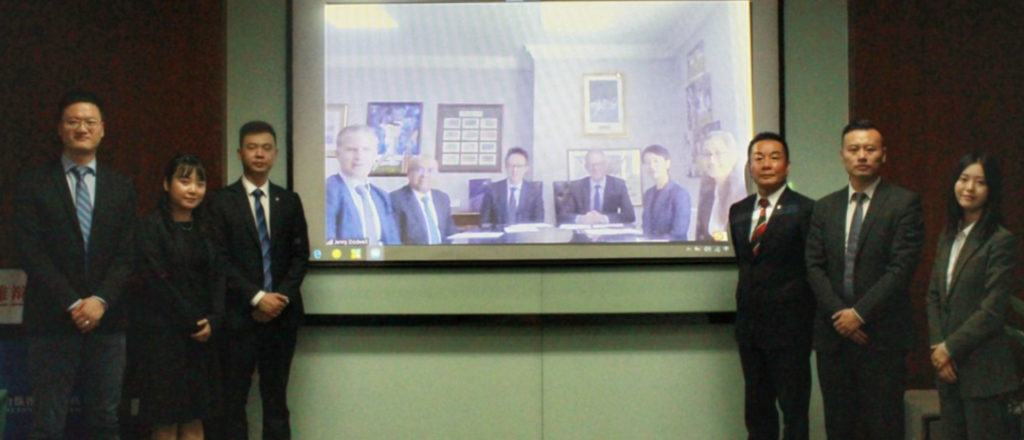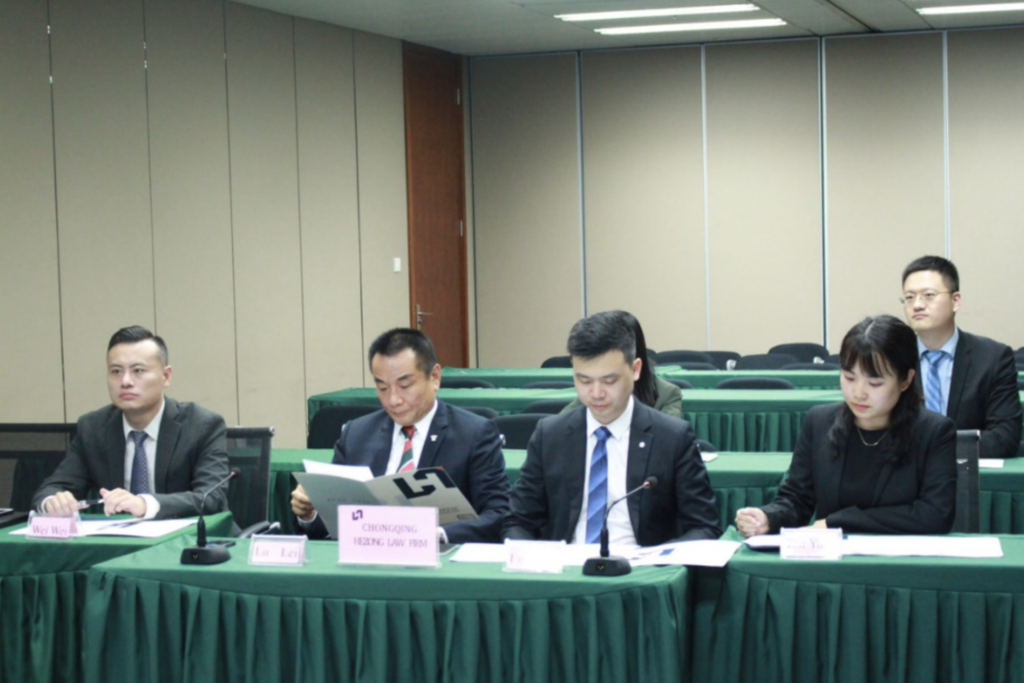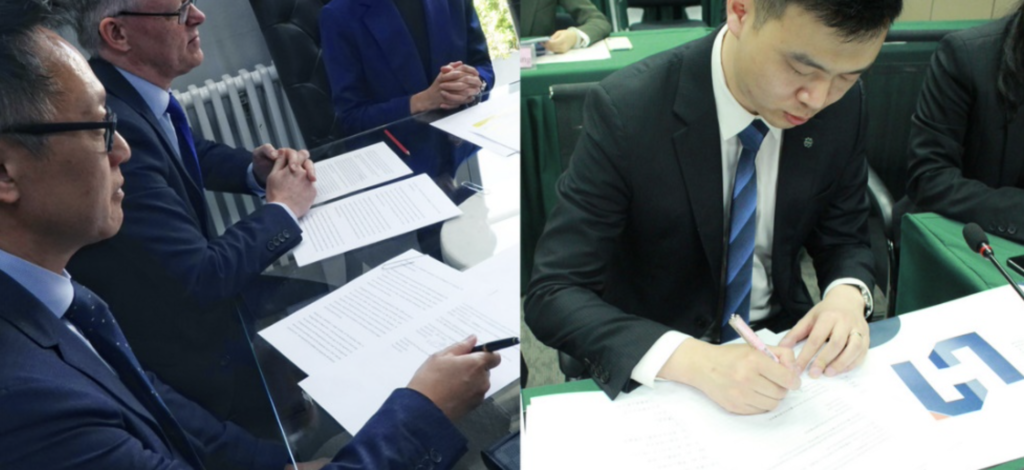Key Stages of a Purchase Transaction for Individual Purchaser
The following is a general guide to the key stages of a conveyancing transaction for an individual purchaser when buying a property:
- Instructing a Solicitor and Client Due Diligence
Once you have instructed a solicitor to act, you should receive a Letter of Engagement, which includes details such as agreed fees and scope of work. Your solicitor will then ask for monies on account to cover the cost of search fees and other disbursements.
Your solicitor is required to carry out proof of identity checks in compliance with the Anti-Money Laundering Regulations and will obtain the following documentation from you:
- Proof of Identity: Original or certified copy of your passport or UK driving licence;
- Proof of Address: Original or certified copy of your bank statements or utility bills (within the past 3 months); and
- Proof of Funding: Original or certified copy of your bank statements (full copy) showing the funds required for your purchase have been deposited in your bank account for at least 3 months in a UK bank account or 6 months in an overseas bank account.
You will need to inform your solicitor if you have a related sale and/or require mortgage finance for the purchase.
If you are buying with the assistance of a mortgage, you will need to provide details of your solicitors to your lender so that they send a copy of your mortgage offer to your solicitors.
You will also need to inform the Estate Agent the details of the solicitors you have instructed so that they can issue a “Memorandum of Sale” to all parties.
Your solicitors will then write to the Seller’s solicitors to confirm instructions and request the draft Contract pack. For leasehold properties, your solicitors will also usually request the Seller’s solicitors to provide the Sales Management pack from the Landlord or the Managing Agent.
- Searches and enquiries
Once the draft Contract pack has been received, your solicitor will review the documentations and instigate the appropriate searches. Please note that the turnaround time for searches may sometimes take more than 10 days depending on the Local Authority.
Your solicitor will raise any enquiries if necessary.
Your solicitor will also discuss a potential completion date as soon as there are no outstanding enquiries.
- Pre-exchange
Your solicitor will prepare a report on title for you outlining the details of the property and drawing your attention to any issues or information you should be aware of.
If you wish to proceed, your solicitor will invite you to sign the Contract together with any other documentation and to transfer the deposit monies (usually 10% of the purchase price) in readiness for exchange of contracts.
Your solicitor will also advise that you to obtain quotations for building insurance for the property as you will take on the risk from exchange of contracts, unless stated otherwise. Please bear in mind this is usually a must for lenders.
- Exchange of contracts
Your solicitor will proceed to exchange contracts as soon as they have received your original signed Contract and deposit.
At this stage, you will become legally obliged to purchase the property and the agreed completion date will become final. In the event that you fail to complete on the completion date, you will be liable under the Contract to pay interest and expenses incurred by the Seller. You may even lose your deposit if the delay continues.
- Pre-completion
Prior to completion, your solicitor will prepare a completion statement calculated up to the completion date. It is recommended that you transfer the completion funds to your solicitor at least 1 business day before completion to avoid any delays which may affect your ability to complete on the completion date.
Your solicitor will carry out all the necessary pre-completion searches.
You should arrange a pre-completion visit with the Seller or Estate Agent to ensure that the property is in an acceptable condition. If there are any issues at this point, you should notify your solicitors as soon as possible.
If you are buying the property with mortgage finance, your solicitor will submit a Certificate of Title to request drawdown funds from your lender. However, please note that most lenders will require a minimum of 5 working days’ notice for drawdown requests.
- Completion
On the day of completion, your solicitor will remit the completion funds to the Seller’s solicitors before the contract time which can vary from 12.30pm to 2pm and the Seller’s solicitors will notify your solicitor upon receipt. The Seller’s solicitors will then confirm completion and inform the Seller and/or the Estate Agent to release the keys to your new property to you.
Your solicitor will advise you when completion has taken place so that you can collect keys at the designated place, which is usually with the estate agents.
- Post-completion
Following completion, your solicitor will deal with post-completion formalities which includes paying any Stamp Duty Land Tax and lodge an application to the Land Registry to register your interest in the property. Please bear in mind that the Land Registry may take at least a few months to register your ownership of the property.
If the property being purchased is Leasehold, your solicitor will serve a Notice of Assignment to your Landlord and/or Managing Agents to ensure that your details are updated. Where you are mortgaging the property, then the Landlord or Managing Agents will need to be notified by way of a Notice of Charge.
In most cases, you are required to pay the fees for receipted notices mentioned above and any other compliance fees.
Once the registration at the Land Registry has been completed, your solicitor will forward you the registered title confirming your ownership of the property. If you purchased with assistance of a mortgage, your solicitor would send a copy of the registered title to your lender evidencing that their charge has been registered.
Divorce Proceedings
We understand the divorce process is emotional and we are here to assist you in the process. Our family law team has wealth of experience and they are here to make this process as painless as possible for you.
Scope of this article:
The divorce process can involve up to three separate elements. These elements are interlinked but we must also consider them separately.
The three elements are: -
- Divorce petition – ie ending a marriage;
- Financial arrangements – how should the matrimonial assets be divided; and
- Arrangements for any dependent child – contact arrangements.
This article addresses the first element of the divorce process.
Who can get a divorce in UK?
Either party to the marriage can initiate divorce proceedings (section 1(1), Matrimonial Causes Act 1973 (MCA 1973)).
What are the legal requirements of divorce in UK?
There are three legal requirements that the petitioner of the divorce has to meet before issuing a divorce:
1, The parties must have been married for at least one year.
2, The court must have jurisdiction to hear the divorce . Whether or not the court has jurisdiction will depend on the parties’ habitual residence or domicile. You must satisfy one of the following criteria: -
- Both parties to the marriage are habitually resident in England and Wales;
- Both parties to the marriage were last habitually resident in England and Wales and one of them continues to reside there;
- The Respondent is habitually resident in England and Wales;
- The Petitioner is habitually resident in England and Wales and has resided there for at least one year immediately before the application was made;
- The Petitioner is domiciled and habitually resident in England and Wales and has resided there for at least six months immediately before the application was made;
- Both parties to the marriage are domiciled in England and Wales; or
- The Petitioner or the Respondent is domiciled in England and Wales.
3, The marriage must have irretrievably broken down. To support the irretrievable breakdown of the marriage, you must prove one of the five facts: -
- Adultery;
- Unreasonable behaviour;
- Desertion;
- Two years' separation with the consent of the respondent; or
- Five years' separation (see Practice note, Divorce and dissolution: five years' separation).
If you are uncertain if you can satisfy all of the above legal requirements, please contact our family law team at chinadesk@cnsolicitors.com.
After I filed for divorce, what’s next? (Petitioner’s perspective)
After you file the petition for divorce and pay the court fee (£550), the court seals your divorce application form and sends it to the Respondent. The Respondent is required to complete and return an acknowledgement of service. This document will confirm that (1) he/she has received your petition; and (2) inform the court whether he/she wants to defend the case.
If the Respondent decides not to defend the case, you are required to prepare and file with the court, an application for Decree Nisi, supported by a signed statement.
The court will consider your application for Decree Nisi and statement and if they are satisfied that the marriage has irretrievably broken down, the court will send you a certificate of entitlement to a Decree Nisi. This will set out the date a judge will pronounce the decree.
You will need to wait 6 weeks from the date you receive your Decree Nisi, to submit your application for a Decree Absolute.
How long does it take to get divorced?
An uncontested and straightforward divorce typically takes six to eight months, provided that both parties deal with the court papers promptly.
Does it make any difference who files for the divorce?
Generally, this should make no difference to the final outcome.
However, this may become relevant in certain circumstances.
For instance, if your spouse wants to file for divorce in China and divide the matrimonial assets based on the Chinese legislation, while you consider it is more appropriate to file for divorce in UK and divide the matrimonial assets here, then you should obtain legal advice as soon as possible.
If your spouse issues divorce proceedings in China first, you may not be able to issue the same proceedings in the UK and you may be bound to deal with your divorce proceedings in China.
Do we have to agree a financial settlement and child arrangement before the divorce can go through?
No. The three elements of divorce are interlinked but shall be considered separately.
It is advisable for an agreement to be reached on financial terms as this gives certainty to both parties that they have no claims on the other spouse’s assets and more importantly you can live a separate life from your ex-spouse.
It is also advisable to try and reach an early agreement for any child arrangements to minimise the impact of the divorce to the child. It will be in the best interest of the child if this can be agreed in advance.
If I get married in China or in other jurisdiction, can I get a divorce in UK?
Provided your marriage is recognised by the Family Court of England and Wales and your circumstances satisfies the above three legal requirements, then you should be allowed to get a divorce in the UK.
If you are uncertain whether your circumstances are considered habitually resident and/or domiciled in the UK, please contact chinadesk@cnsoliciotrs.com for further information.
Road Traffic Accident
It is mid-August which means summer is coming to an end soon, and most importantly, a new academic year is on the horizon.
For the past year and a half, most students have gone from going to school for classes to attending classes for their GCSE, A-Levels and university courses from their desks at home. However, as coronavirus restrictions ease and face-to-face classes resume in the UK, students will have to start commuting to their schools/universities again.
As exciting as this sounds, many of us may need some time to get adjusted to navigating busy roads, especially during rush hours as we are beginning to feel the "old normal".
Some of us might have got used to the new normal of the quiet town/city centres and have forgotten about the real dangers of the accidents if we are not careful enough as pedestrians.
This brings us to the touchy subject of road traffic accidents. As unfortunate as it is and this isn't something that we want to have happened to us. In 2019 alone, the number of pedestrians aged 16 to 24 killed or seriously injured in road accidents in Great Britain is 941.
If you are moving to a new city/town for university, especially if you are an international student, you might want to take more caution as a pedestrian. A research done by Sussex Research Institute in 2008 found that overseas visitors are three times more likely to get into road traffic accidents compared with local residents. Therefore it is vital to be careful when crossing the roads, no matter how busy you might be.
But what if you, unfortunately, get into a road traffic accident and have been injured by a motorist? At Chan Neill Solicitors LLP, our experienced personal litigation team will be able to assist you in your matter to ensure that you will receive the compensation that you deserve.
The process is as follows:
- First, you (or a representative of you if you are physically or mentally incapable of doing so) need to speak to a solicitor specialising in personal injury to enquire whether you have a claim or not. After the solicitors agree to take on your case, they will begin collecting more information from you regarding the road traffic accident to build your case.
- The most crucial thing in a personal injury claim is negligence. In order to have a successful claim, we have to be able to prove that the other party (the motorist in this case) has the duty of care and that the duty of care has been breached - in this instance, it would be that a motorist should follow the Highway Code and ensure the safety of other road users including pedestrians, and they failed to do so which resulted in causing your injury in the road traffic accident.
- Once we can show that there is negligence, we (as the claimant) can issue a claim against the motorist (as the defendant) detailing the defendant's liability and damages.
What happens next:
If the defendant admits that the accident is their fault, they can accept the claim and pay the damages.
However, there is always a chance that the other side will contest the claim or the amount of damages, and the defendant could make a counteroffer.
In some scenarios, if there is a dispute as to which party is at fault, i.e. the defendant rejects the claim that they had negligence, and you have exhausted your settlement options, you will go to court. Your solicitor will then instruct a barrister to represent you in court.
Most solicitors provide services on a conditional fee agreement (also known as a "no-win-no-fee") basis, which means you only have to pay for the legal services if you win the case. For example, at Chan Neill Solicitors LLP, all personal injury claims are charged on a no-win-no-fee basis.
We hope that this article has reminded you of the possible dangers you may encounter as a pedestrian and that you have found this helpful in learning the basics about the personal injury (road traffic accident) litigation process.
Chan Neill Solicitors LLP is one of the leading law firms in London which houses an established Personal Injury practice. Our experienced team of lawyers can offer specialist advice and provide solutions. If you would like to learn more about our Personal Injury practice, please visit https://www.cnsolicitors.com/practice-areas/personal-injury/.
If you have any enquiries, you can fill in and submit the contact form at https://www.cnsolicitors.com/contact-us/. You can also contact us at +44 020 7253 7781.
Chan Neill Solicitors LLP has been shortlisted for a prestigious Law Society Award
The Solicitors and the whole team at Chan Neill Solicitors LLP are humbled and delighted to hear the news that our firm has been shortlisted for one of the Law Society 2021 awards. The Partners recognise that any recognition is through a team effort. Our team have worked extremely hard during this past difficult year and have been thrilled to hear of this recognition of their efforts.
The previous 18 months have been a very difficult time for most businesses and solicitors practices are no exception as we have had to adapt to working from home, with all the extra difficulties in communication that this entails. Client meetings were a daily necessity before the pandemic and this hasn't changed, just the mode of communication has had to change.
As a law firm, we have always strived to find innovative ways to service our international clients' needs. Utilisation of modern technology has been the key to ensuring that our staff and lawyers have been able to function as smoothly as possible through the pandemic months. This has given us the ability to fully function whilst, most importantly, also allowing us to maintain our trademark high levels of client care. As every business plots a path out of lockdown, we hope our efforts to innovate and develop our legal services to existing clients and new clients will see the firm grow from strength to strength as the firm approaches its third decade of operation.
The Law Society of England and Wales President I. Stephanie Boyce said: “Congratulations to all those who have been shortlisted. After an extraordinary year, it has never been more important to celebrate the outstanding work of our profession.”
“Solicitors play a vital role in times of crisis as people turn to trusted professionals, to explain the law, advise them on their rights and their obligations, and give them some sense of certainty.”
“As the country emerges from the pandemic, solicitors will be there every step of the way to help people and businesses get back on their feet and ensure access to justice and the rule of law.”
Paragraph 39E of the Immigration Rules
What Paragraph 39E of the Immigration Rules is all about and how to use it in practice?
To those who do not practice UK Immigration on a regular basis, the Immigration Rules might look complex, confusing and, somewhat, restrictive on what applicants can or cannot do in the United Kingdom. For this reason, it does not come as a surprise when applicants attempt a UK visa application themselves and fail on technicalities or simply because they were not aware of the requirements attached to the chosen visa category. Thankfully, there is a provision of the Immigration Rules which allows the applicants to not only not became overstayers in the UK but also to make another attempt at a visa application within the UK following the refusal.
If applying for a visa within the UK, on the date of application, the applicants must not have remained in the UK after the expiry of their current visa, in other words, must not be overstayers. On 24 November 2016 the Immigration Rules were amended to abolish the 28 day grace period and paragraph 39E was introduced, which allows for the current period of overstaying to be disregarded.
The paragraph 39E reads as follows:
“39E. This paragraph applies where:
(1) the application was made within 14 days of the applicant’s leave expiring and the Secretary of State considers that there was a good reason beyond the control of the applicant or their representative, provided in or with the application, why the application could not be made in-time; or
(2) the application was made:
(a) following the refusal of a previous application for leave which was made in-time; and
(b) within 14 days of:
(i) the refusal of the previous application for leave; or
(ii) the expiry of any leave extended by section 3C of the Immigration Act 1971; or
(iii) the expiry of the time-limit for making an in-time application for administrative review or appeal (where applicable); or
(iv) any administrative review or appeal being concluded, withdrawn or abandoned or lapsing.
(3) the period overstaying was between 24 January and 31 August 2020; or
(4) where the applicant has, or had, permission on the Hong Kong BN(O) route, the period of overstaying was between 1 July 2020 and 31 January 2021.”
Overstaying and Section 3(c) leave
There are two aspects of paragraph 39E: overstaying and Section 3(c) leave of the Immigration Act 1971.
Firstly, the period of overstaying will be disregarded if there is a “good reason” beyond the control of the applicant or their representative as to why the applicant’s visa application was not submitted before their UK visa expired, provided that the application is made within 14 days of the expiry of leave.
Example:
Candice is a Chinese national, who is working in the UK. She was admitted to a hospital, which prevented her from making an in-time application to extend her Skilled Worker visa. She submitted her extension visa application to the Home Office straight after being discharged from the hospital, which was also within 14 days of the expiry of her Skilled Worker visa. She provided a letter from her doctor in support of her visa application. The delay in submitting her visa application in time was beyond Candice’s control, therefore, the Home Office is highly likely to accept that there was a “good reason” for the delayed visa application.
Secondly, the period of overstaying will be disregarded where a visa application, which was submitted before the expiry of leave, was refused and a new visa application was made within 14 days of:
- i) the refusal of the previous application for leave; or
(ii) the expiry of any leave extended by section 3C of the Immigration Act 1971; or
(iii) the expiry of the time-limit for making an in-time application for administrative review or appeal (where applicable); or
(iv) any administrative review or appeal being concluded, withdrawn or abandoned or lapsing.
Example:
Joey is a Chinese national. He is present in the UK under the Innovator visa. He made an in-time visa application within the UK to switch to a Skilled Worker visa, however, it was refused by the Home Office because the sponsoring company assigned him an incorrect type of Certificate of Sponsorship (“COS”).
The sponsoring company then applied for a correct type of COS and assigned it to Joey once allocated by the Home Office. Joey submitted a fresh application to the Home Office within 14 days of the date of the refusal of his previous Skilled Worker visa application. His new application is granted.
Another aspect of paragraph 39E is Section 3(c) leave of the Immigration Act 1971. The purpose of this section is to prevent an applicant, who makes an in-time application within the UK, from becoming an overstayer while they are awaiting a decision on that application and while any appeal or administrative review they are entitled to is pending.
Example:
From the previous example, Joey’s leave was extended by Section 3(c) until his initial Skilled Worker visa application was refused, which prevented him from becoming an overstayer.
If Joey decided to challenge the Home Office’s decision in a way of an Administrative Review, his Section 3(c) leave would have been extended until his Administrative Review is concluded.
It is important to note that Section 3(c) leave cannot be relied on twice. This was concluded earlier this year by the Court of Appeal in the case of Kalsi & Ors v Secretary of State for the Home Department.
Consequences of overstaying
Overstaying is a breach of UK Immigration law, and, in essence, a criminal offence, which can carry long-term consequences. The overstayers can be banned from re-entering the UK for a period of up to ten years in some circumstances.
If someone becomes an overstayer in the UK, they will be exposed to the UK hostile environment, which means to have restrictions on renting accommodation in the UK, open a bank account or even access medical treatment.
Conclusion
It is advisable to avoid overstaying in the UK. Immediate actions must be taken if someone is at risk of becoming an overstayer or has already overstayed their leave, and paragraph 39E can be a solution.
If you are concerned about your immigration status in the United Kingdom, please do not hesitate to contact our Immigration Team for guidance.
Please note that requirements may vary from case to case based on the nuances of your situation, and the information on this page is not intended to replace legal advice.
Strategic Cooperation Agreement Signing
ChongQing Hezong Law firm
Publicity Release
Strategic Cooperation Agreement Signing

On 23rd June 2021, Senior representatives of Chan Neill Solicitors LLP and Chongqing Hezong Law firm officially signed a Strategic Cooperation Agreement connecting the two firms in London and ChongQing.

In the online signing, the Managing Partner Andrew Neill, Senior Partner Michael Chan, Senior Solicitor Naynesh Desai, Senior legal excutive Stuart Angel, International BD manager Jenny Chen and Practice manager Farida Fakhrul from Chan Neill Solicitors LLP and Chief Partner LU Lei, Senior Partner and Director of the Administrative Committee FU Lei, Senior Partner and Deputy Director of the Management Committee WEI Wei, Partner and Director of the Foreign Legal Service Center TAN Yang, Solicitor MOU Ke, and Solicitor TANG Zilan from Hezong Law firm, agreed to commence and launch their strategic cooperation agreement.

Michael Chan and Andrew Neill
Chan Neill Solicitors LLP, was established in 2003, as a full-service law firm located in the city of London and Mayfair along with a representative office in Singapore. The firm offers legal services in business, corporate, business litigation, insurance litigation, personal and catastrophic injury, real estate, employment law, family law, education & immigration, gaming law, tax service, trusts and private client etc.

Chongqing Hezong Law Firm was established in May 1994. Hezong is accredited as a “PRC Law Firm of Excellence at Ministerial Level” by the Ministry of Justice in China. Hezong Law Firm practises in ten legal areas including finance, corporate, civil, criminal, tax, intellectual property, construction, bankruptcy, and foreign-related business. Starting from its base in Chongqing, Hezong has gradually developed and expanded its business throughout China.

Chan Neill Solicitors LLP and Chongqing Hezong Law Firm are delighted to agree this strategic cooperation. Both firms are sure this will actively assist their clients’ requirements and both firms’ business objectives. It is envisaged that the Agreement of Cooperation will enable clients to benefit and will provide strong support to them both in China and in the UK. It is hoped that the Agreement will enable clients to have the edge in strategic planning, business negotiation, contracts within or between parties with interests both in China and UK, and will ensure clients of both firms can achieve their desires so far as legal solutions are concerned.


